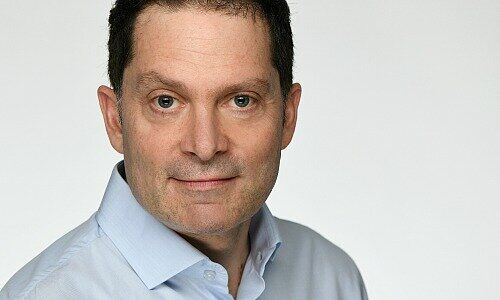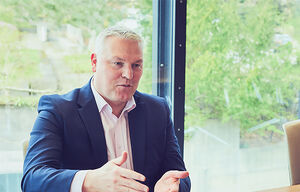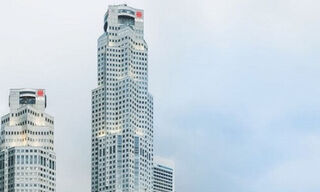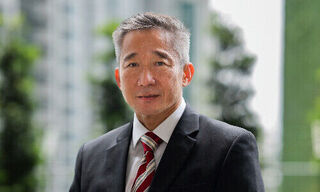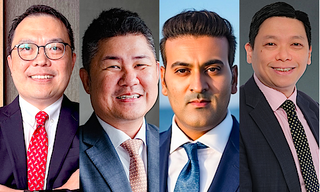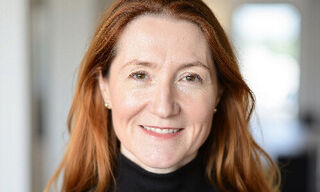Andrew Isbester: «A Referendum That Leaves Many Questions Open»
The upcoming Swiss referendum on corporate liability for the breach of human rights and environmental standards overseas is impractical and maybe even impossible to implement, says Andrew Isbester in an essay for finews.first.
This article is published on finews.first, a forum for authors specialized in economic and financial topics.
For this Swiss citizen living abroad, and one who has voted with alacrity in every referendum that has come his way in recent years – partly as a way of assuaging the conscience that unfettered, reasonable democracy still exists – the upcoming vote on November 29 certainly gives one pause for thought.
According to the initiative, Swiss citizens will be deciding whether companies with operations abroad need to ensure that all their business activities adhere to internationally acknowledged human rights and environmental standards.
If approved, the legislation would include suppliers and business partners. Beyond this, the drafters intend to make the companies liable in a Swiss court should they fail to do so.
«If the initiative is rejected, the Swiss parliament has already passed a counterproposal»
Reading it from a long way away, it almost seems like they are intent on taking the current American modus operandi of extending sovereign legal jurisdiction extra-territorially one step further by getting the entire world to face a Swiss court. That eventuality, should it ever materialize, should prove to be interesting.
If the initiative is rejected, the Swiss parliament has already passed a counterproposal that would come into force also requiring significantly enhanced due diligence and disclosure by Swiss companies abroad, the main difference being that the government does not intend to make companies liable for their international activities. Instead, it will levy any infractions with a relatively modest fine of 100,000 Swiss francs.
«It is anyone’s guess how auditors will do this»
In both cases, companies will have to legally document the risks of their overseas activities when it comes to human rights, the environment, and corruption. In effect, what is likely to happen is that internal control and risk functions will get audit firms to do it as this will be the only way to assure any degree of independence and impartiality.
It is anyone’s guess how auditors will approach this, as they are usually engaged for specific pieces of work, such as ensuring that garment factories do not use child labor – and similar. A cursory look at the United Nations Universal Declaration of Human Rights gives a rough indication of the ungainly spreadsheets hapless junior auditors will be completing to assess whether countries have, for example, freedom of movement, thought, speech, religion and assembly. It will be even harder to do with suppliers. They will also be reliant on their answers, which, drawing from experience, are usually delayed, vague and incomplete as such audits usually fall on deaf ears in everything but the most extreme cases.
«It is hard to see how any Swiss multinational business will be able to fully comply»
The referendum leaves many questions open. For example, what happens to businesses, such as banking, insurance, pharmaceuticals and consumer goods, which have been located for decades in countries that have been systematically breaching human rights and have hundreds or maybe even thousands of employees there, not to mention significant investments in property, plant and equipment? How can you reasonably assess liability? If the counterproposal is passed, do the companies disclose their activities, turn a blind eye, and pay the 100,000 francs year after year? Will there be thresholds requiring companies to leave?
Whatever the case, in the medium to long term, in Asia it is hard to see how any Swiss multinational business will be able to fully comply unless they are only located in Japan or, say, South Korea.
Andrew Isbester, a Swiss-British dual citizen, is an editor-at-large for finews.asia and finews.com, living in Hong Kong for 12 years. He spent his formative years in a number of countries including Argentina, Brazil, the U.S., Belgium and Scotland before returning to work in Switzerland in the 1990s and early 2000s as a correspondent and, subsequently, bureau chief for the international news agency «AFX News», which was part of «Agence France Presse» (AFP) and the «Financial Times». Following this, he worked in Zurich and Hong Kong for several major banks before resuming his activities as a journalist.
Previous contributions: Rudi Bogni, Peter Kurer, Rolf Banz, Dieter Ruloff, Werner Vogt, Walter Wittmann, Alfred Mettler, Robert Holzach, Craig Murray, David Zollinger, Arthur Bolliger, Beat Kappeler, Chris Rowe, Stefan Gerlach, Marc Lussy, Nuno Fernandes, Richard Egger, Maurice Pedergnana, Marco Bargel, Steve Hanke, Urs Schoettli, Ursula Finsterwald, Stefan Kreuzkamp, Oliver Bussmann, Michael Benz, Albert Steck, Martin Dahinden, Thomas Fedier, Alfred Mettler, Brigitte Strebel, Mirjam Staub-Bisang, Nicolas Roth, Thorsten Polleit, Kim Iskyan, Stephen Dover, Denise Kenyon-Rouvinez, Christian Dreyer, Kinan Khadam-Al-Jame, Robert Hemmi, Anton Affentranger, Yves Mirabaud, Katharina Bart, Frédéric Papp, Hans-Martin Kraus, Gerard Guerdat, Mario Bassi, Stephen Thariyan, Dan Steinbock, Rino Borini, Bert Flossbach, Michael Hasenstab, Guido Schilling, Werner E. Rutsch, Dorte Bech Vizard, Adriano B. Lucatelli, Katharina Bart, Maya Bhandari, Jean Tirole, Hans Jakob Roth, Marco Martinelli, Thomas Sutter, Tom King, Werner Peyer, Thomas Kupfer, Peter Kurer, Arturo Bris, Frederic Papp, James Syme, Dennis Larsen, Bernd Kramer, Ralph Ebert, Armin Jans, Nicolas Roth, Hans Ulrich Jost, Patrick Hunger, Fabrizio Quirighetti, Claire Shaw, Peter Fanconi, Alex Wolf, Dan Steinbock, Patrick Scheurle, Sandro Occhilupo, Will Ballard, Michael Bornhaeusser, Nicholas Yeo, Claude-Alain Margelisch, Jean-François Hirschel, Jens Pongratz, Samuel Gerber, Philipp Weckherlin, Anne Richards, Antoni Trenchev, Benoit Barbereau, Pascal R. Bersier, Shaul Lifshitz, Klaus Breiner, Ana Botín, Martin Gilbert, Jesper Koll, Ingo Rauser, Carlo Capaul, Claude Baumann, Markus Winkler, Konrad Hummler, Thomas Steinemann, Christina Boeck, Guillaume Compeyron, Miro Zivkovic, Alexander F. Wagner, Eric Heymann, Christoph Sax, Felix Brem, Jochen Moebert, Jacques-Aurélien Marcireau, Ursula Finsterwald, Claudia Kraaz, Michel Longhini, Stefan Blum, Zsolt Kohalmi, Karin M. Klossek, Nicolas Ramelet, Søren Bjønness, Lamara von Albertini, Andreas Britt, Gilles Prince, Darren Willams, Salman Ahmed, Stephane Monier, and Peter van der Welle, Beat Wittmann, Ken Orchard, Christian Gast, Didier Saint-Georges, Jeffrey Bohn, Juergen Braunstein, Jeff Voegeli, Fiona Frick, Stefan Schneider, Matthias Hunn, Andreas Vetsch, Fabiana Fedeli, Marionna Wegenstein, Kim Fournais, Carole Millet, Ralph Ebert, Swetha Ramachandran, Brigitte Kaps, Thomas Stucki, Teodoro Cocca, Neil Shearing, Claude Baumann, Guy de Blonay, Tom Naratil, Oliver Berger, Robert Sharps, Tobias Mueller, Florian Wicki, Jean Keller, Fabrizio Pagani, Niels Lan Doky, Michael Welti, Karin M. Klossek, Ralph Ebert, Johnny El Hachem, Judith Basad, Katharina Bart, Thorsten Polleit, Beat Wittmann, Bernardo Brunschwiler, Peter Schmid, Karam Hinduja, Stuart Dunbar, Zsolt Kohalmi, Raphaël Surber, Santosh Brivio, Gérard Piasko, Mark Urquhart, Olivier Kessler, Bruno Capone, Peter Hody, and Lars Jaeger.

